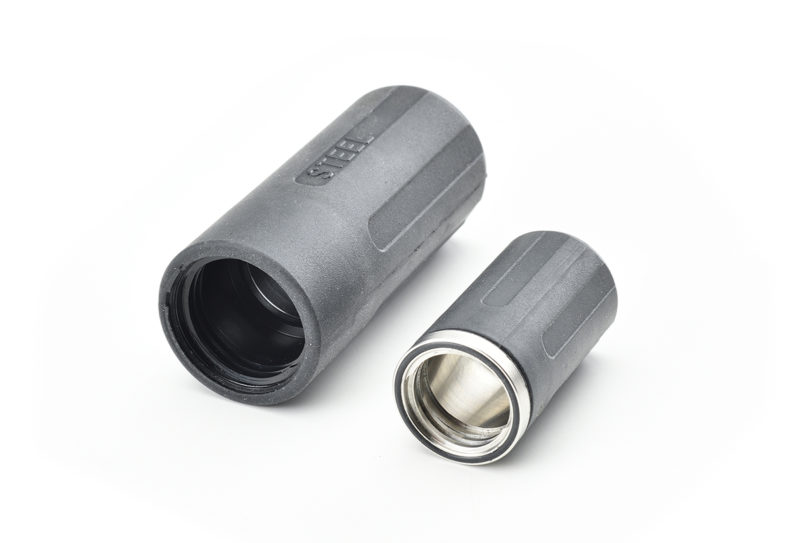Neoprene seals are a versatile and cost-effective choice for a wide range of industries. They offer a balance of performance and affordability, making them ideal for many sealing applications.
What are Neoprene seals?
Neoprene seals are mouldings formed from polychloroprene, a synthetic rubber known for its durability and flexibility. These seals create a tight barrier between surfaces, preventing leaks and protecting components from contaminants.
What are some common Neoprene applications?
Neoprene’s versatility extends across various industries, including:
- Aerospace: Sealing environmental control systems.
- Energy: Sealing valves, pipes, and flanges in power generation facilities.
- Food & Beverage: Food-grade neoprene seals for processing equipment and packaging.
- Instrumentation & Electronics: Protecting sensitive components from dust, moisture, and vibration.
- Motorsport: High-performance seals for suspension systems.
- Subsea & Oil & Gas: Durable seals for demanding underwater environments, resisting oil and gas exposure.

Neoprene Characteristics
Neoprene provides almost unique environmental performance. Here’s an overview of it’s properties:
- Hardness: Ranges from soft and flexible to firm for various sealing pressures.
- Tensile Strength: High resistance to pulling forces, ensuring a strong seal.
- Tear Resistance: Resists punctures and rips for long-lasting performance.
- Impact Resistance: Absorbs shock and impact without cracking.
- Compression Set: Excellent mechanical performance maintaining shape and sealing integrity under compression.
- Temperature Resistance: Performs well in moderate temperatures, with options for low and high-temperature applications.
- Weather and Sunlight: Good resistance to weathering and sunlight degradation.
- Water Resistance: Excellent for applications involving water exposure.
- Abrasion Resistance: Moderate resistance to wear and tear.
- Solvent Resistance: Limited resistance to certain solvents, requiring careful selection.
- Oils and Gasoline: Resists some oils and gasoline, but compatibility testing is crucial.
- Adhesion to Metals: Bonds well with many metals using bonding agents or adhesives.
Take a look at the specifications of our Neoprene 70 material.
Material expertise
At DP Seals, we are experts in neoprene materials and understand the nuances of selecting the right blend for your application. We partner with leading compounders to offer a wide range of neoprene options, ensuring optimal performance and longevity for your seals.
We also maintain a large quantity and variety of quality raw materials in stock, enabling us to offer fast turnaround and provide for tight deadlines.
The information provided here is only a guide to Neoprene’s primary characteristics and uses. The relationship between material, product performance and blend options is complex.
Below you’ll find many free resources to help you think about material selection and we are always on hand to discuss your requirements and provide expert advice.
Commonly used Neoprene materials
We offer a variety of neoprene materials to suit diverse needs. Contact us to discuss your specific requirements and explore our selection, including:
- General-purpose neoprene: Ideal for moderate temperatures and environments.
- Flame-retardant neoprene: Meets fire safety standards for critical applications.
- Food-grade neoprene: Complies with regulations for food and beverage contact.
- Low-temperature neoprene: Maintains flexibility and sealing performance in cold environments.
- High-temperature neoprene: Provides reliable sealing at elevated temperatures.
Why choose custom versus standard Neoprene mouldings?
While standard neoprene seals offer a cost-effective solution for common applications, custom seals provide several advantages:
- Precise fit: Ensures optimal sealing performance for your specific application.
- Material optimisation: Tailored material properties to meet unique temperature, chemical resistance, or performance needs.
- Enhanced functionality: Incorporate features like grooves, flanges, or integrated reinforcements for specific requirements.
DP Seals manufacture custom parts only. If you are currently using standard rubber gaskets, seals or mouldings, but have some level of dissatisfaction with results, read our article with nine great reasons to trade up to a custom solution!
- Custom Neoprene seals
- Custom Neoprene gaskets
- Custom Neoprene mouldings
- Micro Neoprene mouldings
- Neoprene to rubber bonding
- Neoprene to metal bonding
Handy Product Development Resources
- Design Engineers checklist
- Chemical Compatibility Database
- Rubber Compound Data Sheets
- Videos with Top Tips
- Guide to developing Custom Rubber Seals, Gaskets & Mouldings
- Rubber To Metal Bonding Guide
Customer testimonials
It is nice to work with people who support you as best they can, in a fast paced challenging environment. As seal manufacturers go, in my experience DP Seals are head and shoulders above the rest. Long may it continue.
Mathew Cocksey. Managing Director, Integral Powertrain
Read more customer testimonials
Find out more
By understanding neoprene’s properties, benefits of customisation, and our material expertise, you can make informed decisions about neoprene seals for your project. Contact us today to discuss your specific requirements and discover how DP Seals can be your trusted partner in neoprene sealing solutions.
- Speak to our Material Technologists on +44 (0)1202 674671